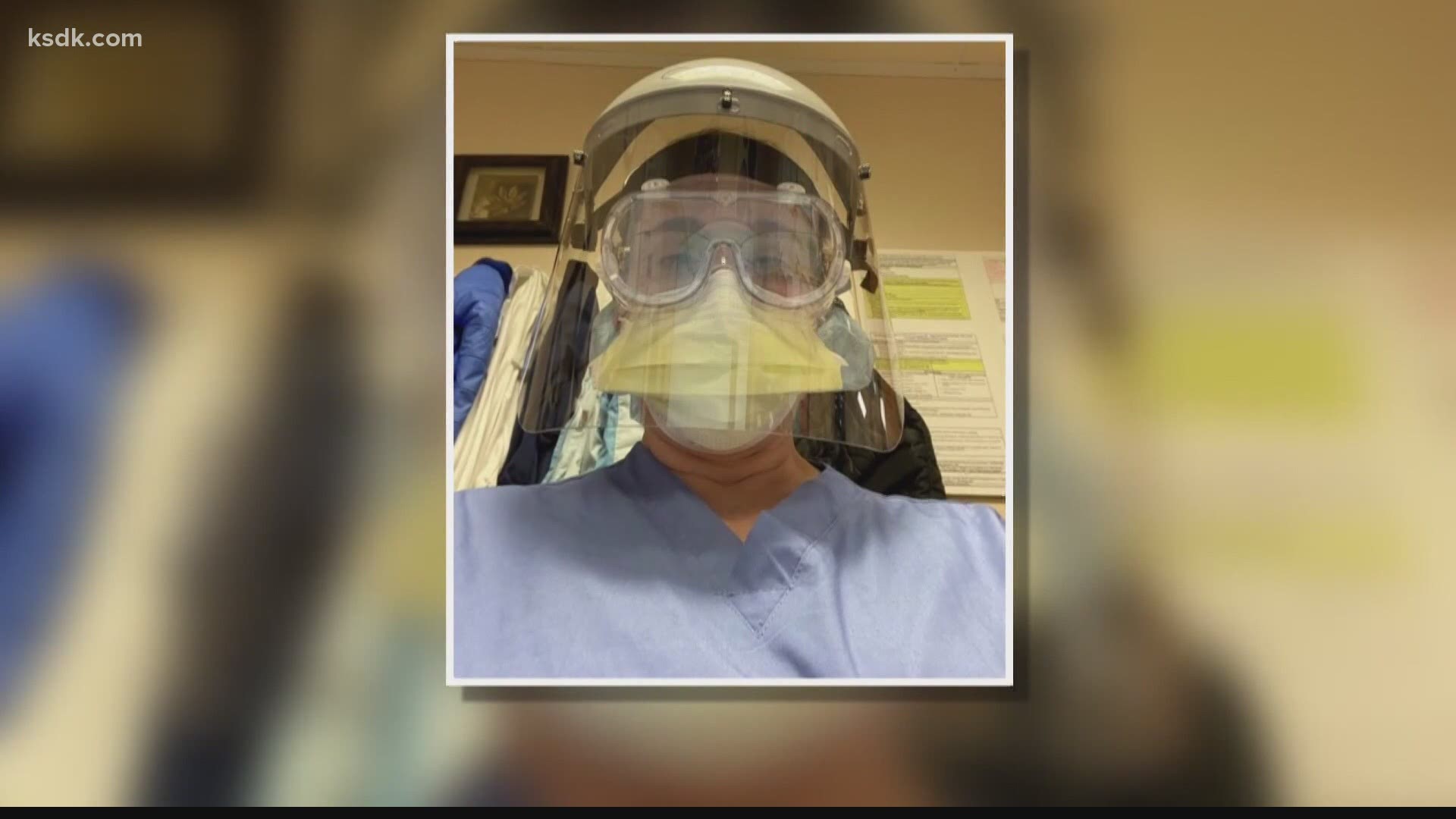ST. LOUIS COUNTY, Mo. — While many of us were told to stay home in March 2020 to prevent the spread of COVID-19, frontline healthcare workers didn’t have the option — and for Dr. Tiffany Osborne, it meant quite the opposite.
“There were so many unknowns. There were unknowns about how you get it. There were unknowns about how you transmit it. There were unknowns about who was going to get most severely ill, who was not going to make it out of the hospital," she said.
That's why she returned from a day on the frontlines in the emergency room to a camper in front of her house, isolating the mother and wife from her family inside.
"This is basically her deployment for the war on COVID," her husband Jeffrey told 5 On Your Side at the time.
One year later, she's one of so many healthcare workers who bears the scars from that ongoing war.
“We've all had friends who've died from this. I mean, we've all known medical providers who have either gotten sick with it or who have died with it,” she said.
The trauma, burnout and emotional fatigue she and many of her colleagues experienced will take time and effort to heal, she said.
“I think that we're still trying to decide how to move forward from that. There are a lot of people right now who, they're struggling,” she said. "We are in a new wave of this pandemic and that new wave is, how do we take care of ourselves, how do we take care of our friends, our colleagues, our family?”
However, Osborn says she's seen glimmers of hope along the way.
“Everyday people in and outside of medicine, creating good with what they had. And they had strength and they had integrity and they had civility and kindness and the desire to stand together. You know, perhaps we can honor those that we lost by trying to live each day ... with those principles in mind,” she said. “There's nothing that is more powerful or inspiring than witnessing a kind heart that is fulfilling the purpose for which it is designed.”
With the vaccine rollout picking up momentum and the number of cases of COVID-19 heading in the right direction, for Osborn’s family, the clearest sign of taking a turn for the better was watching the camper pull out of the driveway.
“It’s very exciting to have the opportunity to be living full time in my house again, since I've gotten the vaccine,” said Osborn, who’s spent plenty of time snuggling her teenagers and curled up with her cat since they sold the camper.
“It represented me being a source of risk as well as a source of comfort, right? So my being in there is because I was trying to provide care and comfort to the most vulnerable during their most vulnerable time, but it also meant that, you know, I had to be isolated,” she said.
“Seeing that gone represents all of the things that can now come in.”

